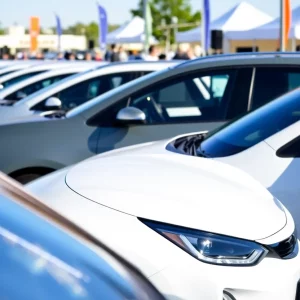Charleston Faces Road Funding Dilemma After Referendum Rejection
Charleston, SC – The weather outside may be cloudy today with a slight chance of rain, but the mood in Charleston County is anything but sunny. As temperatures rise to a pleasant 73°F, the hot topic on everyone’s mind is the recent rejection of a vital transportation plan aimed at expanding the Mark Clark Extension. The County Council and state officials are scrambling to navigate the fallout from the $1.8 billion shortfall after voters turned down the half-cent sales tax referendum on November 5.
The Situation at Hand
To give you a little context, the proposed Mark Clark Extension was set to connect West Ashley through Johns Island to the James Island connector. This project was not just about new roads; it also promised funding for mass transit, green space preservation, and other road projects. Unfortunately, only 39% of voters were on board, leading to a decisive 61% against the tax that would fund the road, leaving officials in a real pickle.
Soon after the referendum’s outcome, letters landed in the hands of Charleston County officials from both the S.C. Department of Transportation and the state Transportation Infrastructure Bank. These letters were crystal clear—they want to know how Charleston County plans to tackle its funding obligations for the delayed Mark Clark Extension. While discussions will take place behind closed doors at a special county meeting on November 19, one thing is apparent: dire action is needed.
The Next Steps
According to D.O.T. Secretary Justin Powell, the agency has hit pause on seeking federal permits for the road. That’s right—no permits mean no progress. What’s frustrating is that the D.O.T. is all set to submit a final environmental impact statement to the Federal Highway Administration but is waiting for further guidance from county officials. Who knew that one vote could cause such a ripple effect?
Councilwoman Jenny Honeycutt expressed her concerns, suggesting the county needs to come up with alternative funding strategies quickly. “I think that’s what we’re going to try and figure out,” she commented after the vote. Fellow council member Teddie Pryor mentioned that federal funding could be a viable option, but that hinges on the project being “shovel-ready.” He also raised the critical question—we need answers on why the D.O.T. is holding back on submissions.
The Community Weighs In
Reactions have split the community down the middle. Supporters of the extension argue that voters merely objected to the tax and not the road itself. Meanwhile, detractors like Councilman Larry Kobrovsky are adamant that the results of the referendum should spell the end for the Mark Clark Extension discussions. “Any attempt to weasel around this or act like the election didn’t happen is unacceptable,” he declared.
This back-and-forth has fueled intense debate among residents. There are whispers that supporters of the project may pursue another referendum in 2026. However, opponents believe that voters will reject it once again. Rich Thomas, a member of the opposition group Nix526, affirmed, “If they come back in two years, we’ll do the same thing.”
Meeting Highlights
The special County Council meeting is set for 6 p.m. at 4045 Bridge View Drive, North Charleston. Keep your eyes peeled—while much of the discussion will be private, any votes will be made public. The meeting will reveal whether Charleston County can find a new path forward in this complicated funding labyrinth.
Not only is Charleston navigating its transportation future, but Beaufort County has found itself in a similar pickle, having also seen voters reject tax funding for an important road project. With a smaller shortfall of $190 million, they too are exploring other ways to fund their transportation needs.
So, as we sit back and enjoy this rather windy November day, with gusts reaching up to 40 mph, let’s keep our eyes on Charleston’s bold efforts to tackle these transportation challenges ahead. Stay tuned as community leaders convene to navigate this turbulent situation and share their thoughts on what’s next for our beloved Lowcountry.

























